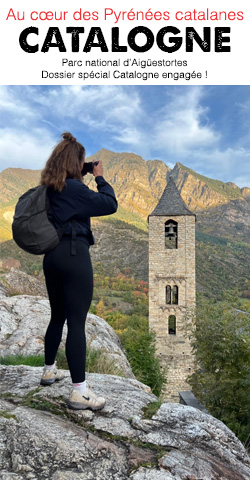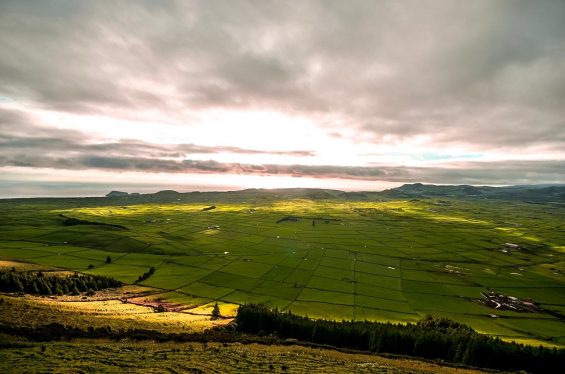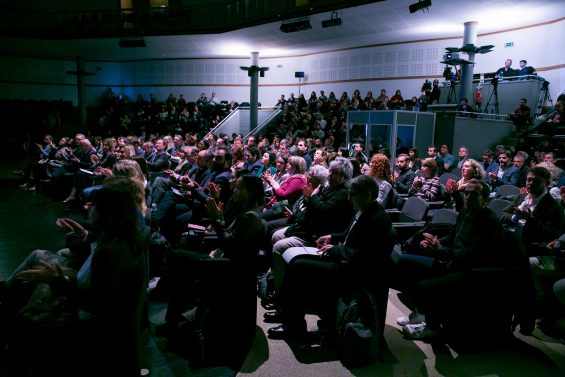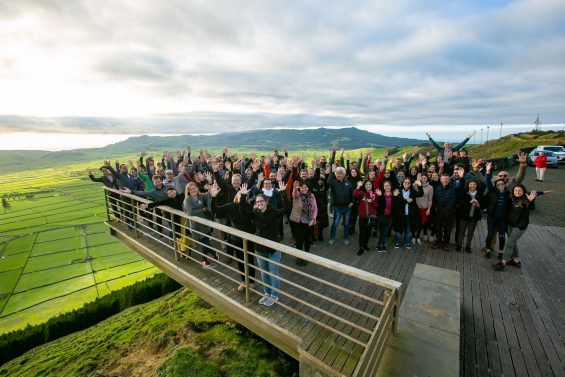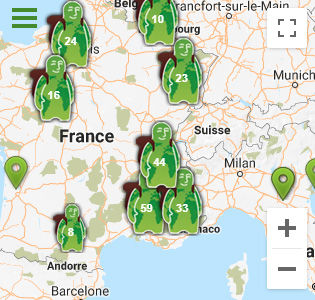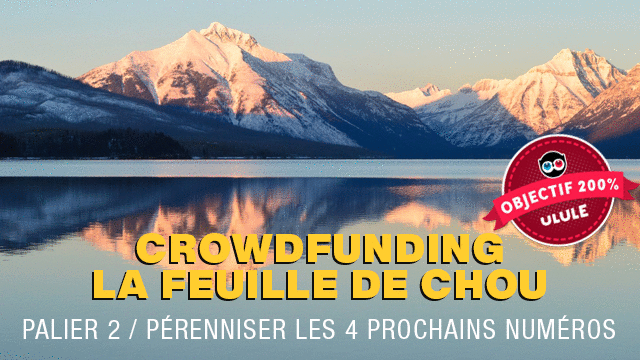Reporting back from GSTC 2019 Consumers’ trends and slow travel
Thèmatique : Conseils Guides Ingénierie Innovation Monde
From #GSTC2019, the French-speaking media platforms TV5 Monde and Voyageons Autrement, which aim at raising awareness on sustainable tourism, are reporting – with the support of the French national association for sustainable tourism (ATD) – on the conference’s most interesting panels and presentations. Today, Conscious Travel founder Anna Pollock leads a presentation on consumers’ trends and slow tourism exposing the work and thoughts of three panelists: Dirk Schmücker, Sara Bellshaw and Jeppe Klockareson.
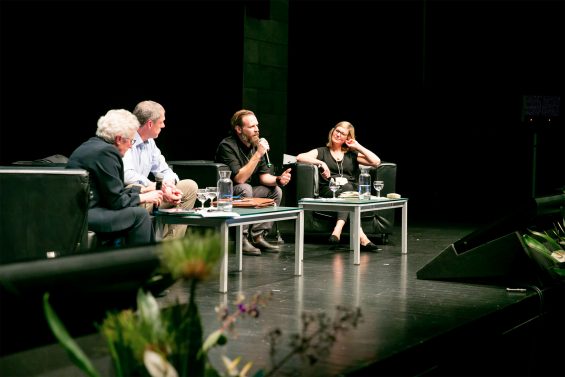
Anna Pollock – Dr. Dirk Schmücker – Jeppe Klockareson – Sara Mair Bellshaw
The German example
Dr Dirk Schmücker, Professor and Head of Research at the Institute for Tourism Research in Northern Europe (NIT), gives an overview of what consumers’ trends and demands are in Germany, a country which is the biggest sender of tourists in the world after China and the USA. Dirk Schmücker has a certain sense of humour when showing to the public a photograph of the average German tourist: a slightly hairy male tourist in his swimming trunks sunbathing on a beach with an Aldi plastic bag behind him! According to last year’s figures, Dirk Schmücker starts with a disappointing fact: air transport is going up and there is a growth in intercontinental travel: « People with high income tend to travel further away and those with lower income travel closer ».
Greta’s mixed effects
He notices a small change though: « Even though air transport grows, there has been a tiny drop due to the Greta effect, but we have to wait to see whether it’s significant ». He also adds that ironically, it’s mainly the youngest who travel most by plane. Do they feel bad about flying? Well, according to him, 53% of the German tourists travelling by plane don’t feel bad about flying.
The German tourists’ perception of sustainability
Then comes the word « sustainability ». « 57% say this is something they would like to have in their trip and the number of people agreeing on this is growing », but he also notices that only 6% book eco-certified holidays versus 14% in business travel; 36% admit they simply don’t know if sustainability is part of their booking ». He explains that there are many other elements of information overwhelming their decision process and sustainability doesn’t obviously come first.
Acceptance rather than preference
« People wouldn’t mind if their trip was more sustainable, but they are not actively search for it. It’s more about acceptance than preference« . To him, priming helps changing the standards « and it’s also about building up positive attitude, probably the most promising path for informed deciders ». And for the rest, the only way is to change the standards or tax them.
Impressions on the recent evolution of the travel industry in Sweden
Fair Travel founder Jeppe Klockareson has decided to give a rather old-school presentation and to reflect on last year’s evolution of the travel industry in Sweden. The first person he mentions is Greta Thunberg : « I am one of her biggest fans. She made us understand our industry had to be challenged. I started getting phone calls from worried tour operators: people were not booking as much as they used to, they were cancelling trips because of Greta »… Well, there was no other option than taking sustainability seriously, which Jeppe did.
Sustainability is the new norm
The Fair Travel founder reveals how he started to work closer to tour operators, asking them to point out the positive aspects of the trips they were selling rather than imposing the S-word straight away. « Some of them thought « sustainability » was just a trend and that it would pass. When mentioning including sustainability in their products to their hierarchy, they were laughed at by their head offices, but they had to understand it’s not a trend but the new norm« , Jeppe explains. Going back to the positive side of things, Jeppe highlights the fact that travelling by train inside the country has increased by 8% in the last year and that domestic air travel has subsequently dropped. About compensation, he notices that tour operators offer more and more carbon offsetting « but it’s still not enough ».
There are good trips and bad trips
Following the Greta effect, he also notes that the travel industry has to deal with the way the large majority of the media depicts travelling today: « For them, all travel is bad but we all know there are good trips and bad trips. What would happen if we stopped travelling? », he asks the public. Jeppe gives the example of Costa Rica, a country which succeeded in transforming its approach to tourism through eco-tourism and replanting trees. « What would happen if tourism stopped in Costa-Rica and on the other hand, there are also countries like Guyana suffering from undertourism. Its pristine rainforest covering 87% of the country needs to be kept intact and tourism could help prevent it from being cut », Jeppe adds.
He concludes that people should keep on travelling but make sure that they have a positive effect on the places they go to.
Slowing down in what more and more people want
Coming from the Highlands of Scotland, Sara Bellshaw talks about the Slow Adventures project lead by the Centre for Recreation and Tourism Research at the University of the Highlands and Islands in Scotland. She starts with a definition of the term « slow adventures » she characterises with four keywords: nature, passage, time and comfort. « Through our project, we look at consumers’ trends and how to meet their demands. We notice that they want to slow down, get more authentic experiences, linked with nature, wilderness and wild places », Sara explains.
Developing the Slow Adventures movement
Working with businesses creating Slow Adventures experiences is another part of Sara’s project. They have to follow the Slow Adventures’ guidelines and criteria: « Journeys have to be human or nature powered, bring an inspiring connection with the outdoors, an environmental and cultural interpretation, involve elements of storytelling and of course local, wild and slow food« . As a result, 56 experiences were created in 7 northern countries such as Finland, Sweden, Northern Ireland, Scotland… The Slow Adventures project is now marketing them as well as developing the concept. Sara is actually quite proud of the project’s snail logo and ends her presentation admitting slow adventures are not suitable for everywhere: « There is a lot of ground work to do on capacity and with communities before creating experiences in places ».
Thinking out of the box
After a fun interlude of relaxation and even short massage sessions, Conscious Travel founder Anna Pollock takes the presentation to a next level starting with the strong statement: « We are living a tectonic shift, not a trend, happening in an incredibly short period of time ». She exhorts people to see our relation to earth and to us in a new way.
Forget boxes and categories
Environmental distress, social and political unrest, economic instability and new technology – both promising and terrifying – are things the travel industry has to deal with. To Anna, « we are used to put these things separately in boxes, to treat them as categories like you have the « environment box », the « instability one » etc… That’s the reason we are in trouble right now, because we separate instead of unifying« . She strongly suggests we have to start thinking in terms of systems, relationships and connections, not in terms of categorising.
How to react to cognitive dissonance
She then comes back to the state of the travel industry: « We are all experiencing a degree of cognitive dissonance. The industry is growing, especially air transport, but what are we going to do about it? Very quickly we have to do sustainable practices, shrink our footprint, do less harm, more good, find out how to get inspired ».
Inspire
Like many of the GSTC 2019 speakers, she has an issue with the word « sustainability »: « There is a big thing about sustainability. We are not sure what we are sustaining and it doesn’t really inspire us. We need to use new words in our vocabulary like « flourish, prosper, thriving ». They open enough to inspire. And we have to think about the people we love. What do we wish for them? We want them to be happy, healthy. It’s all about aliveness and joy ». She concludes that it’s all about getting rid of a certain pattern of thinking and about simplifying the language to inspire.
Video available on FB – soon on Youtube
A lire également – To read also
GSTC 2019, le tourisme durable vu par The Travel Foundation (in French, sorry Anglo-Saxon friends)
GSTC 2019: Marketing sustainability and influencing travellers’ preferences (in english)
For any questions/Itws, please contact Romain Vallon – romain.vallon@idcroise.fr – or comment below
LES AUTRES ARTICLES DE CE DOSSIER :
GSTC 2019 Terceira
- Congrès annuel du GSTC 2019 : quelques résultats concrets...
- Vers la fin des plastiques à usage unique dans le secteur touristique?
- GSTC 2019: Marketing sustainability and influencing travellers’ preferences
- GSTC 2019, le tourisme durable vu par The Travel Foundation
- Reporting back from GSTC 2019 Consumers trends and slow travel
- Conférence mondiale : «Sur la voie d'un tourisme durable»
Par Elisabeth Blanchet
Ancienne prof de maths, je me suis reconvertie dans le photo journalisme en 2003 à Londres où je vivais. J’ai travaillé pour différents magazines dont Time Out London et j’ai développé des projets à longs termes dont un sujet les préfabriqués d’après-guerre, une véritable obsession qui perdure, les Irish Travellers -nomades Irlandais- dans le monde, les orphelins de Ceausescu - je suis des jeunes qui ont grandi dans les orphelinats du dictateur depuis 25 ans -. Je voyage beaucoup et j’adore raconter des histoires en photo, avec des mots, en filmant, en enregistrant… Des histoires de lieux, de découvertes mais surtout de gens. Destinations de cœur : Royaume-Uni, Irlande, Laponie, Russie, Etats-Unis, Balkans, Irlande, Lewis & Harris Coup de cœur tourisme responsable : Caravan, le Tiny House Hotel de Portland, Oregon – Mon livre de voyage : L’Usage du Monde de Nicolas Bouvier – Le livre que je ne prends jamais en voyage : L’oeuvre complète de Proust à cause du poids – Une petite phrase qui parle à mon cœur de voyageur : « Home is where you park it »
Les 5 derniers articles de Elisabeth Blanchet
- Greeters : de l’accueil à la mise en récit du territoire
- Un voyage humanitaire à la frontière de l’Ukraine
- Voyages linguistiques – récit d’un aficionado
- Le tourisme humanitaire : le décor et son envers
- Trophées du Tourisme Accessible 2022, les gagnants !
Voir tous les articles de Elisabeth Blanchet
Découvrez nos abonnements
Informations utiles pour voyager
Congrès annuel du GSTC : quelques résultats concrets... le GSTC (Global Sustainable Tourism Council) tenait sa conférence annuelle début décembre aux Açores. L’occasion de faire le point avec son président, Luigi...
Cap sur le tourisme durable avec le lancement du label Swisstainable la Suisse comme 'championne cachée de la durabilité' ? Détails du label 'Swistainable' suisse du tourisme durable ~ par Vanessa Beucher...
Conférence mondiale : «Sur la voie d'un tourisme durable» La conférence mondiale GSTC 2019 se déroulera sur l'Île de Terceira aux Açores du 4 au 7 décembre 2019. Elle réunira des acteurs du tourisme national et...
Reporting back from GSTC 2019 Consumers' trends and slow travel Conscious Travel founder Anna Pollock leads a presentation on consumers' trends and slow tourism exposing the work and thoughts of three panelists:...
Reporting back from GSTC 2019: Marketing sustainability and influencing travellers’ preferences From #GSTC2019, the French-speaking media platforms TV5 Monde and Voyageons Autrement, which aim at raising awareness...
GSTC 2019, le tourisme durable vu par The Travel Foundation Graeme Jackson, responsable des partenariats de The Travel Foundation révèle le travail et la vision de la fondation britannique en matière de tourisme...

